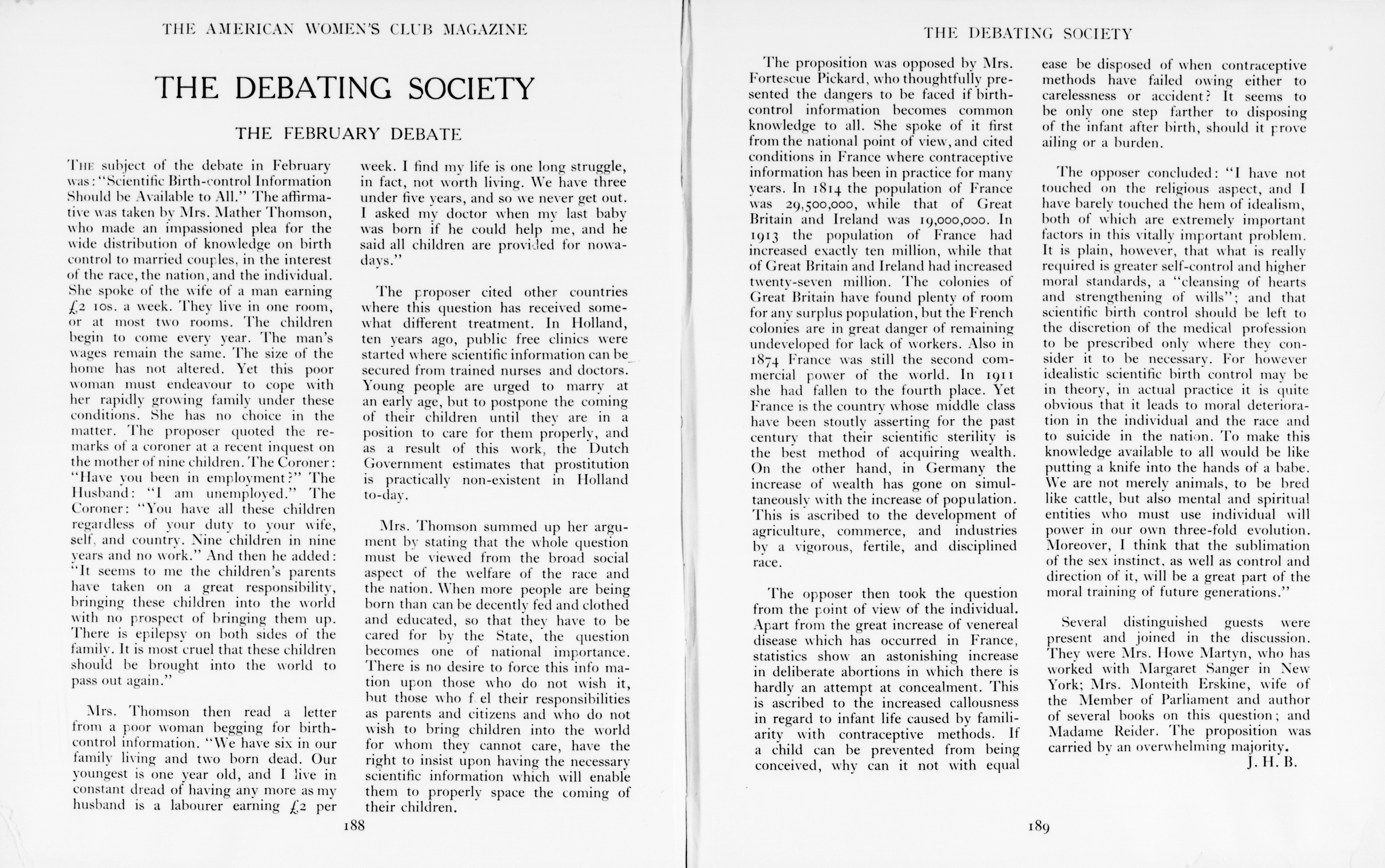
Our latest “Document of the Week”, chosen by our Editor, Nishah Malik, is lifted from an edition of the American Women’s Club Magazine, published in April 1919. The article summarises a session of the club’s lively debating society. The February debate addressed one of the most pressing issues of the early twentieth century: whether “Scientific Birth-Control Information Should be Available to All”.
The topic was proposed by Mrs. Mather Thomson, who made an impassioned plea for the wide distribution of knowledge on birth control to married couples. She focused on the financial burdens faced by working-class families and the struggles of women raising large families in poverty. One poignant example involved the wife of a man earning just £2 a week, living in cramped conditions with “children coming every year” while their “wages remain the same”.
Mrs. Thomson also read from a letter that she had received from another woman who had six in their family. The woman explained how her youngest was only one year old and that she lived in “constant dread of having any more”. She described her dire need for medical help, having “three [children] under five years”, and called her life “one long struggle”, concluding that it often felt “not worth living”.
Thomson concluded that “the whole question must be viewed from the broad social aspect of the welfare of the race and the nation”, explaining that scientific information would allow couples “to properly space the coming of their children”.
The opposition, presented by Mrs. Fortescue Pickard, raised moral concerns. She feared that widespread knowledge of contraceptives would erode discipline, lead to carelessness, and ultimately weaken the moral fibre of both the family and the nation. Birth control, she argued, should be a last resort, used under a doctor’s supervision. She warned that making it widely available was like “putting a knife into the hands of a babe”. Most shockingly, the piece ended with the line:
“Moreover I think that the sublimation of the sex instinct as well as control and direction of it will be a great part of the moral training of future generations."
In other words, the opposition believed that reproduction should not be managed through science or medicine, but through personal restraint, spiritual strength, and strict moral discipline.
This debate offers a vivid glimpse into the shifting conversations around women’s health, family planning, and reproductive rights during the early twentieth century. It captures the tension between lived realities, such as mothers struggling to feed and clothe large families, and the dominant moral and religious values of the 1920s. It also highlights the international dimensions of the birth control movement, with speakers drawing on examples from Holland, France, and Britain.
Where to find this document
This piece comes from our primary source collection, American Women's Club Magazine, 1925–1936. Consisting of nearly 3,400 images, it brings together editions of the AWCM that were published monthly throughout this period. These document the history and activities of the AWC. They likewise shed light upon the wider social, political, and cultural contexts that precipitated and shaped institutions like the AWC. Visit the collection page to learn more.
